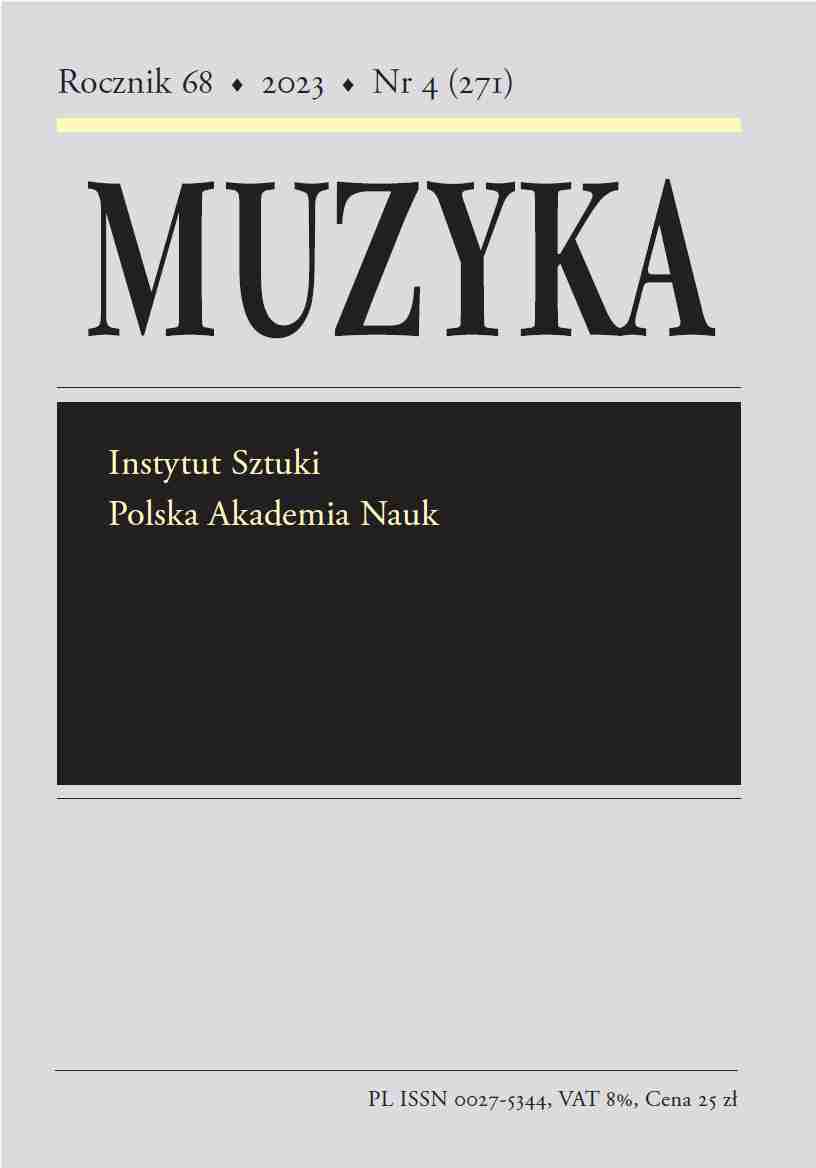Teren badawczy dawniej i dziś. Rekonesans na przykładzie zwyczaju „dunajowania”
The Concept of the Field in the Research Past and Present. A Reconnaissance Based on the Custom of ‘dunajowanie’
Author(s): Agata KustoSubject(s): Anthropology, Music
Published by: Instytut Sztuki Polskiej Akademii Nauk
Keywords: carolling with wishes; dunajowanie; dunajowe songs; music traditions of the Lublin region; Intangible Cultural Heritage; the folklore of the Biłgoraj region
Summary/Abstract: This text compares two situations of the documentation of musical traditions distant from each other in time and space. The custom of dunajowanie (carolling with wishing songs for marriageable girls at Christmastide), or wassailing, is a good illustration of how the concept of the ‘field’ in research has evolved over time and has been influenced by the documenting of musical traditions. The article makes use of available documents in the form of audio and video recordings, verbal and musical texts, descriptions of the custom, and statements from informants. Also included is information about the researchers, as individuals who became involved in the local traditions in various ways and to a varying extent or sought to influence the local communities and the repertoire performed. This study is limited to the earliest and most recent perspectives, namely, the ‘first wave’ of documentation, which resulted from the performance by a group of ‘Dunajnicy’ at the Festival of Folk Bands and Singers in Kazimierz Dolny, where they won the grand prix (‘Baszta’), and the ‘last wave’ in the dunajowanie tradition, in the form of the Lubelszczyzna Dunajuje contest. The article discusses dunajowanie from the perspective of ethnolinguistic and cultural research conducted to date, showing the context, symbolism and functions of wassailing in general. The earliest recordings and written documents are described, as well as contemporary practice. Past editions of Lubelszczyzna Dunajuje provide valuable material for analysis, both of the verbal-musical repertoire and how it has changed over time, and also of the social factors that affect it, due to changes in the folkloric context. In the twentieth century, folklore documentation was a research aim, resulting in publications of an essentially academic character. In our times, despite the enormous possibilities afforded by modern equipment, it poses major methodological challenges for ethnomusicologists studying new sources.
Journal: Muzyka
- Issue Year: 68/2023
- Issue No: 4
- Page Range: 75-95
- Page Count: 21
- Language: Polish

